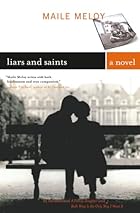 The Mammoth Cheese
The Mammoth Cheese is full of surprises. I expected a light funny read, but this book is chock full of people with common problems and a few not so common. There are many stories taking place in the novel and they all twine together nicely.
In the small town of Three Chimneys, Virginia, Margaret Prickett is a single mom to 13 year old Polly. Margaret is trying desperately to keep the family dairy farm afloat. Threatened with foreclosure, she puts all her hopes and energy into electing Adams Brooke president. Brooke’s campaign promise of forgiving the debts of all family farms keeps Margaret going through a very challenging year. She tends the farm, makes cheese, raises Polly and works tirelessly on Brooke’s campaign.
Meanwhile, her neighbor, Manda Franks, has just given birth to 11 babies. You didn’t misread that. Eleven. The town – and the whole country – have gone into typical media frenzy over the births. The only person seemingly not thrilled by this historical event is Manda (and the nutcases who write threatening letters).
Many other characters and minor stories enter into play. August Vaughn has worked on Margaret’s dairy farm for many years. He’s been in love with her since they were teenagers, but she’s clueless. August still lives with his parents, the Reverend Leland Vaughn and Evelyn, and he travels around the region portraying his hero, Thomas Jefferson.
Some characters are just despicable; Holman may have gone a little overboard with her portrayal of Polly’s father Francis and of Patrick Lewis, the local weatherman-turned-feature reporter. Mr. March, Polly’s history teacher, is the lowest of the low.
There are so many themes running through this book, it could almost make up three or four books – but because Holman weaves it all together so nicely, it didn’t feel overwhelming. Some of the issues include:
- corporate farms vs family farms
- food politics
- coming of age
- the ethics of fertility therapy
- dishonesty in politics
- patriotism
- media responsibility
- strengths and weaknesses of community
- unrequited love
- child sexual abuse
One of the things Holman does so well is depicting setting. I felt damp and dank after reading the description of Leland’s visit to Manda’s after some of the babies come home:
“Manda, could I trouble you for some Tylenol? I have a vicious headache,” said the preacher, wanting to break the depressing spell cast by the wet dogs and the musty food, the unmucked pen and the relentless drizzle. He was getting soaked, and a dull pain was blooming behind his left eye. (snip)This would be the weather in Hell, Pastor Vaughn thought dully. Not an infinite inferno, but one long unsettled day in between seasons, too hot to wear a sweater, too rainy to go without one, a muggy, clammy, oppressive sort of day, when all the world’s sins would stick to a man like dust from the road.Made me want a shower.
Holman does a great job with her characters (with the exceptions above) and the story, chunky as it could be, really flows. And what is the mammoth cheese? It’s a 1,235 pound block of Margaret’s artisan cheese destined for an unforgettable road trip to Washington D.C. I won’t reveal more – but Holman’s book is not predictable! Recommended.
.
 A Short History of Tractors in Ukrainian by Marina Lewycka
A Short History of Tractors in Ukrainian by Marina Lewycka



 )
)
 )
)
